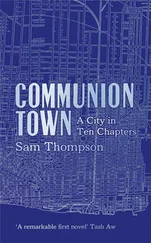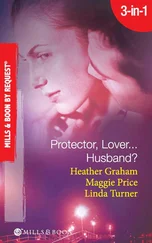Frank Tallis - Deadly Communion
Здесь есть возможность читать онлайн «Frank Tallis - Deadly Communion» весь текст электронной книги совершенно бесплатно (целиком полную версию без сокращений). В некоторых случаях можно слушать аудио, скачать через торрент в формате fb2 и присутствует краткое содержание. Жанр: Исторический детектив, на английском языке. Описание произведения, (предисловие) а так же отзывы посетителей доступны на портале библиотеки ЛибКат.
- Название:Deadly Communion
- Автор:
- Жанр:
- Год:неизвестен
- ISBN:нет данных
- Рейтинг книги:3 / 5. Голосов: 1
-
Избранное:Добавить в избранное
- Отзывы:
-
Ваша оценка:
- 60
- 1
- 2
- 3
- 4
- 5
Deadly Communion: краткое содержание, описание и аннотация
Предлагаем к чтению аннотацию, описание, краткое содержание или предисловие (зависит от того, что написал сам автор книги «Deadly Communion»). Если вы не нашли необходимую информацию о книге — напишите в комментариях, мы постараемся отыскать её.
Deadly Communion — читать онлайн бесплатно полную книгу (весь текст) целиком
Ниже представлен текст книги, разбитый по страницам. Система сохранения места последней прочитанной страницы, позволяет с удобством читать онлайн бесплатно книгу «Deadly Communion», без необходимости каждый раз заново искать на чём Вы остановились. Поставьте закладку, и сможете в любой момент перейти на страницу, на которой закончили чтение.
Интервал:
Закладка:
‘Not very far. The sixth district. Near the Theater an der Wien.’
‘They say that she is greatly admired by the artists of the Secession. I wonder what sort of woman she is?’
‘Why don’t you come and see for yourself?’ Rheinhardt recovered his fork and guillotined his pancake. ‘I could do with some company.’
Their destination was a smart town house, three storeys high, with baroque window hoods and a balcony that bellied out above the front door. They were admitted by a maidservant and introduced to Kristina Vogl’s secretary — an attractive girl whose elegance was undermined by an unfortunate stoop.
‘Madame is unwell. She has taken to her bed. Even so, she is willing to receive you upstairs — if you don’t mind …’ The girl smiled, pointed at the ceiling, and remained in this position for longer than was necessary to achieve her purpose. Rheinhardt indicated that he had no objection. ‘This way, please.’
The secretary led them up a wide, somewhat ostentatious staircase, and down a corridor that led to the rear of the house. She knocked lightly on one of the doors.
‘Madame?’
A muffled voice: ‘Come in.’
The secretary ushered Rheinhardt and Liebermann into her mistress’s bedroom and closed the door behind them.
Liebermann was impressed by the decor. It was decidedly modern. The furniture was black and boxlike, unencumbered by redundant detail. A beige carpet with a red grid pattern covered the floor and the wallpaper was enlivened by a subtle recurring motif of stylised leaves. The air was fragrant with rose and lavender.
Kristina Vogl was sitting up in a large double bed, surrounded by sketchbooks and fabric samples. Liebermann studied the famous couturiere with interest. She possessed fine, regular features, and eyes of an uncommonly pellucid blue. Her hair was dark brown and fell down in loose curls to her slim shoulders, which were wrapped in the shimmering crimson swathe of a kimono. Gold dragons disported themselves across the silk. On a bedside cabinet stood a lamp which Liebermann identified as the work of Josef Hoffmann.
‘You are Inspector Rheinhardt?’
Her accent was brittle.
Rheinhardt’s bow was more florid than usual — almost foppish. He gestured towards his friend: ‘And my associate, Herr Doctor Liebermann.’
Kristina tilted her head to one side, tacitly questioning why a detective inspector should be accompanied by a medical man; but Rheinhardt did not give her an answer. Instead, he clasped his hands together over his heart.
‘Thank you so much for agreeing to see us today. I wish you a swift recovery. Permit me also to offer you our most sincere condolences.’
The woman coughed. Liebermann thought the action rather forced, like a hysterical patient with tussis nervosa.
‘You are most kind, inspector. It was a shock, of course. I could hardly believe it. You read of such things in the newspapers but you never consider that your own life will be touched by such terrible events. Poor Selma.’
Rheinhardt took a step forward.
‘I understand that Fraulein Wirth was a close friend.’
Kristina’s brow furrowed. When she spoke, her delivery was hesitant: ‘I wouldn’t say that we were close. But I have known her a long time.’
‘Since childhood?’
‘Yes. But the nature of our relationship …’ Kristina appeared a little discomfited. ‘I think before we proceed any further it would be advisable for me to clarify a few points.’
‘As you wish.’
‘Selma was the daughter of my mother’s laundry maid. We were very fond of each other as children and we corresponded as adults; but, naturally, our lives have followed somewhat different courses.’ Kristina’s expression became pained. ‘We did not have a great deal in common. Further, I feigned a deeper affection than, in fact, really existed between us. You will ask why. Well, Selma was a proud woman and it was only by invoking our friendship that I could persuade her to accept financial assistance. I hope that God will forgive me this small deception which was practised only in the service of charity.’
‘I see.’ said Rheinhardt. ‘I am sure that in the ledgers of heaven such an act of human kindness will not be counted against you.’ Kristina dismissed the compliment with a languid flick of her wrist. ‘You may not have been bosom companions,’ Rheinhardt continued, ‘but I assume you were familiar with Fraulein Wirth’s general circumstances?’
‘Yes — that is true.’
Rheinhardt nodded and checked the horns of his moustache.
‘Then could you tell me if Fraulein Wirth had any gentleman friends?’
‘She had many when she was younger. She was very striking. But as soon as her leg problems started she became markedly less interested in flirtations and romance.’
‘What about recently? Did she mention meeting anyone?’
‘No. But …’
Kristina shook her head.
‘What is it?’
‘Nothing …’
‘Please,’ said Rheinhardt. ‘You were going to say something.’
‘On my last visit — and the previous one — I thought there was something about her, something different, something changed. She seemed in higher spirits and more conscious of her appearance. And I must admit, it did cross my mind …’
‘That she had begun a relationship?’
‘Yes. But I cannot say for certain. She did not say anything to confirm my suspicions.’
‘What did she talk about when you last saw her?’
‘How much she disliked working at the laundry. I had — of course — offered her a good position among my household staff on numerous occasions, but she always refused. Pride again, you see. She talked about her leg; although she always talked about her leg. She wanted to go to a spa in Switzerland where she had read about a new miracle cure.’
‘When you visited her on Thursday evening, did you see anyone else?’
‘I saw her neighbour — looking out of the window. And there was a man in the yard.’
‘Did you recognise him?’
‘No.’
‘What did he look like?’
‘I wasn’t paying much attention.’
‘How was he dressed?’
‘I think …’ Kristina bit her lower lip. ‘I think he was wearing a bowler hat and a long coat.’
‘Did he have a beard? A moustache?’
‘I really can’t remember.’
‘What was he doing?’
‘He wasn’t doing anything — he was just standing.’
‘Waiting?’
‘Possibly.’
‘Did he see you?’
‘I imagine so.’
‘In which case, I would urge you to be very vigilant. If you see this man again, you must not hesitate to contact us.’
‘But I took very little notice of him. He isn’t someone I’d recognise.’
While Rheinhardt and Frau Vogl continued their conversation, Liebermann’s attention was drawn to a series of lithographs. They were executed in a style that reminded him of illustrations he had seen in Ver Sacrum, the journal of the Vienna Secession. The female figures, in mannered stances, were greatly influenced by Klimt. Liebermann moved closer and examined the autograph: Carl Otto Czeschka. Each image showed a scene from the fairy story ‘Ashputtel’. He followed the narrative: the ugly step-sisters, confiscating Ashputtel’s fine clothes and giving her instead an old frock; Ashputtel, by the wishing tree, taking delivery of her ‘magical’ dresses — each more beautiful than the last; the handsome prince sliding a golden slipper onto Ashputtel’s dainty foot as the stepsisters reel back in horror …
A gentle knock rescued Liebermann from the phantasmagorical world of the Brothers Grimm. On the other side of the room a door was slowly opening. The man who appeared was middle-aged and dignified. Before the newcomer closed the door again, Liebermann saw that the adjoining chamber was also a bedroom.
Читать дальшеИнтервал:
Закладка:
Похожие книги на «Deadly Communion»
Представляем Вашему вниманию похожие книги на «Deadly Communion» списком для выбора. Мы отобрали схожую по названию и смыслу литературу в надежде предоставить читателям больше вариантов отыскать новые, интересные, ещё непрочитанные произведения.
Обсуждение, отзывы о книге «Deadly Communion» и просто собственные мнения читателей. Оставьте ваши комментарии, напишите, что Вы думаете о произведении, его смысле или главных героях. Укажите что конкретно понравилось, а что нет, и почему Вы так считаете.












